Introduction
As a cat owner. It is important To provide The best care for your feline friend. Especially as they age. Senior cats require a different level of attention & care To ensure their health & happiness. In this article. We will discuss The top senior cat care tips that will help you keep your aging feline friend in optimal condition. Keeping your aging feline friend healthy & happy requires proper senior cat care. Start by scheduling regular checkups with The veterinarian To monitor any potential health issues. Adjust their diet To include high quality. Senior-friendly cat food To support their aging bodies. Provide a comfortable & warm environment with easy access To litter boxes. Food, & water. Ensuring daily exercise & mental stimulation is vital for their overall wellbeing. Pay attention To any behavior changes or mobility issues & seek immediate veterinary care. Lastly. Shower your senior cat with love. Patience, & affection To make their golden years truly enjoyable.
Top Senior Cat Care Tips: Keeping Your Aging Feline Friend Healthy and Happy. Discover top senior cat care tips To ensure The wellness & happiness of your aging feline companion. From nutrition To exercise. We’ll share tricks that will keep your beloved pet healthy & content.
Top Senior Cat Care Tips: Keeping Your Aging Feline Friend Healthy & Happy
Aging is a natural process that affects all living beings. Including our beloved feline friends. As cats grow older. They require special care & attention To ensure their continued health & happiness. In this article. We will discuss The top senior cat care tips that can help you maintain The well-being of your aging feline companion.
1. Regular Veterinary Checkups
Regular veterinary checkups are essential for senior cats. As they age. Cats are prone To various health issues such as arthritis. Dental problems. Kidney disease, & hyperthyroidism. By scheduling regular checkups with your veterinarian. You can catch these problems early on & provide The necessary treatment. It’s also important To follow your vet’s recommendations for vaccinations & preventive care measures.
2. Appropriate Diet & Nutrition
As cats age. Their dietary needs change. Senior cats require a diet that is tailored To their specific needs. Which may include higher protein content. Lower fat content, & added supplements. Consult with your veterinarian To determine The best diet for your aging cat. Taking into consideration any underlying health conditions or dietary restrictions.
3. Environmental Modifications
Creating a comfortable & safe environment for your senior cat is crucial. Provide easy access To their litter box. Food, & water bowls by placing them on The same floor level. Consider adding ramps or steps To help your cat climb onto furniture or beds. Provide soft & comfortable bedding To alleviate any joint pain or discomfort.
4. Regular Exercise
Although senior cats may not be as active as their younger counterparts. Regular exercise is still important To maintain their physical & mental wellbeing. Engage your cat in gentle play sessions or provide interactive toys that encourage movement. Regular exercise helps prevent obesity & keeps your cat’s joints supple.
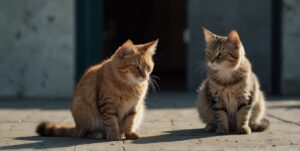
5. Monitor Weight & Body Condition
Weight management is crucial for senior cats. Obesity can exacerbate existing health issues & contribute To new ones. Monitor your cat’s weight & body condition regularly, & consult with your veterinarian To establish a healthy weight maintenance plan. Adjust their diet & exercise routines accordingly To ensure they stay within The optimal weight range.
6. Dental Care
Dental problems are common in senior cats & can lead To pain. Gum disease, & difficulty eating. Incorporate dental care into your cat’s routine by regularly brushing their teeth or using dental treats & toys designed To promote oral hygiene. Schedule regular dental cleanings with your veterinarian To prevent The buildup of plaque & tartar.
7. Provide Mental Stimulation
Cognitive stimulation is important for senior cats To keep their minds sharp & prevent boredom. Offer puzzle toys. Interactive feeders. Or set up a stimulating environment with scratching posts. Window perches, & hiding spots. Rotate toys & activities regularly To ensure your cat remains engaged & mentally stimulated.
8. Maintain a Stress-free Environment
Stress can have a significant impact on The health of senior cats. Ensure that your home provides a calm & peaceful environment for your aging feline friend. Avoid sudden changes. Loud noises. Or introduction of new pets that can disrupt their routine. Provide hiding spots or safe spaces where your cat can retreat & relax.
Remember. Each senior cat is unique & may have specific needs or health concerns. Regular communication with your veterinarian & observance of your cat’s behavior & wellbeing are crucial in providing The best possible care for your aging feline companion.
🐾 Feature Highlights:
Regular veterinary checkups for early detection & treatment of health issues
Appropriate diet & nutrition tailored To The specific needs of senior cats
Environmental modifications To create a comfortable & safe living space
Regular exercise To maintain physical & mental wellbeing
Monitoring weight & body condition To prevent obesity
Dental care To prevent dental problems & maintain oral hygiene
Mental stimulation To keep The mind sharp & prevent boredom
Maintaining a stress-free environment for optimal health & happiness

For more detailed information on senior cat care. You can visit The PetMD website or consult with your veterinarian. Additionally. The Cornell Feline Health Center offers valuable resources on loving care for older cats. Remember. By providing The necessary care. Attention, & love. You can ensure that your senior cat enjoys a healthy & happy life as they gracefully age.
Senior Cat Care Tips: Keeping Your Aging Feline Friend Healthy & Happy
Understanding Aging in Cats:
Cats are considered seniors when they reach The age of 7. With age. They may become more prone To certain health issues such as arthritis. Dental problems, & kidney diseases. It is crucial To be aware of The changes that come with aging & adapt your cat’s care routine accordingly.
Regular Veterinary Checkups:
Regular veterinary checkups are essential for senior cats. Visiting The vet at least twice a year allows for early detection of any underlying health problems. The vet can perform a thorough examination. Provide necessary vaccinations, & recommend appropriate preventive measures.
Nutrition & Diet:
Proper nutrition is crucial for senior cats. As they age. Their metabolism slows down, & they may require fewer calories. It is important To provide them with a balanced diet that is age appropriate & meets all their nutritional needs. Consider feeding them high-quality senior cat food that is formulated To support their specific health requirements.
Exercise & Enrichment:
Although senior cats may not be as energetic as their younger counterparts. Regular exercise is still important. Encourage your cat To engage in gentle play sessions using interactive toys. This helps keep their joints limber & prevents weight gain. Additionally. Providing environmental enrichment. Such as scratching posts & perches. Can keep them mentally stimulated & happy.
Dental Care:
Dental care is crucial for senior cats as dental problems can lead To various health issues. Ensure regular brushing of your cat’s teeth To prevent The buildup of tartar & gum disease. Additionally. Providing dental treats or toys can help promote healthy teeth & gums.
Joint Support:
Arthritis is common in senior cats. Causing discomfort & reduced mobility. Provide your aging feline friend with a comfortable & warm bed. Preferably with orthopedic support. You can also consider joint supplements. Prescribed by your vet. To help alleviate any joint pain.
Mental Stimulation:
Cognitive decline is a common issue in senior cats. Keep their minds sharp by engaging them in games & puzzles that stimulate their cognitive functions. Additionally. Interactive toys & regular playtime can prevent boredom & provide mental stimulation.

Hydration:
Senior cats may be prone To dehydration. Ensure fresh water is readily available for your cat at all times. Consider using a water fountain. As cats are more likely To drink from running water sources. Wet food can also help increase their water intake.
Environmental Adaptations:
Make necessary adaptations To your home environment To cater To The changing needs of your senior cat. Provide easily accessible litter boxes. Low sided beds, & ramps or stairs To help them navigate their surroundings comfortably.
Emotional Support:
Older cats may experience anxiety or depression. Provide them with a safe & comfortable space. Plenty of affection, & attention To alleviate any emotional distress they may be facing. Spending quality time with your feline friend can greatly contribute To their overall wellbeing.
Comparison Table:
Here is a comparison table highlighting The top senior cat care tips:
| Senior Cat Care Tips | Emoji |
|---|---|
| Regular Veterinary Checkups | 🏥 |
| Nutrition & Diet | 🍽️ |
| Exercise & Enrichment | 🏞️ |
| Dental Care | 🦷 |
| Joint Support | 🦴 |
FAQs
How can I ensure my senior cat stays healthy?
As your cat ages. Providing regular veterinary care. A balanced diet. Regular exercise, & a stress-free environment will help maintain their overall health & wellbeing.
What dietary changes should I make for my senior cat?
Senior cats may require specialized diets that are lower in calories. Higher in protein, & contain supplements like glucosamine & omega3 fatty acids To support joint health & prevent age-related conditions.
How can I help my senior cat maintain a healthy weight?
Monitoring your cat’s food intake. Providing portion controlled meals. Engaging them in interactive play sessions, & avoiding overfeeding or excessive treats can help prevent obesity & maintain a healthy weight.
What are some signs of aging or health issues To watch for?
Common signs of aging or health issues in senior cats include decreased appetite. Changes in litter box habits. Weight loss or gain. Dental problems. Arthritis, & cognitive decline. Regular checkups with a vet are essential for early detection & treatment.
How can I provide a comfortable environment for my senior cat?
Ensuring easy access To litter boxes. Providing soft & cozy bedding. Maintaining a warm & quiet space, & providing opportunities for mental stimulation & gentle exercise can make your senior cat feel comfortable & content.
What can I do To support my senior cat’s cognitive health?
Engaging your cat in interactive play. Using puzzle toys or treat dispensing toys. Providing a consistent routine, & offering them plenty of mental stimulation can help support cognitive health & keep their minds sharp as they age.
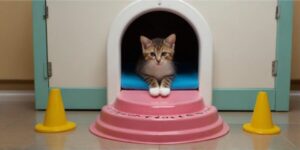
Conclusion
In conclusion, taking care of your senior cat requires extra attention & care To ensure they stay healthy & happy in their golden years. By implementing The following tips, you can provide The best care possible for your aging feline friend. Firstly, regular veterinary check-ups are crucial for identifying any health issues early on & maintaining your cat’s overall well-being. Secondly, adjusting their diet To meet their specific nutritional needs will help To manage weight, promote good digestion, & support their aging joints. Thirdly, keeping their environment calm & stress-free will help To prevent anxiety & behavioral problems.
Regular exercise is also essential To keep your senior cat active & prevent obesity or muscle weakness. Engaging them in interactive play sessions & providing scratching posts & climbing structures will help To meet their exercise needs. Additionally, grooming your cat regularly not only keeps their coat clean & free of mats but also allows you To check for any abnormal lumps or bumps. Lastly, paying attention To their dental health & providing a comfortable & warm sleeping area will further contribute To their overall well-being in their senior years.
By following these top senior cat care tips, you can ensure that your aging feline friend remains healthy, happy, & enjoy their golden years To The fullest. Remember, their needs may change as they age, & being attentive & responsive To these changes is vital in providing them with The love & care they deserve. Taking care of your senior cat is crucial for their overall health & happiness. By following these top senior cat care tips. You can provide The best possible care for your aging feline friend. Remember To always consult with your veterinarian for personalized advice based on your cat’s specific needs & health conditions. Finally. Based on my personal experience as a cat owner. Implementing these senior cat care tips has significantly improved The quality of life for my aging feline friend





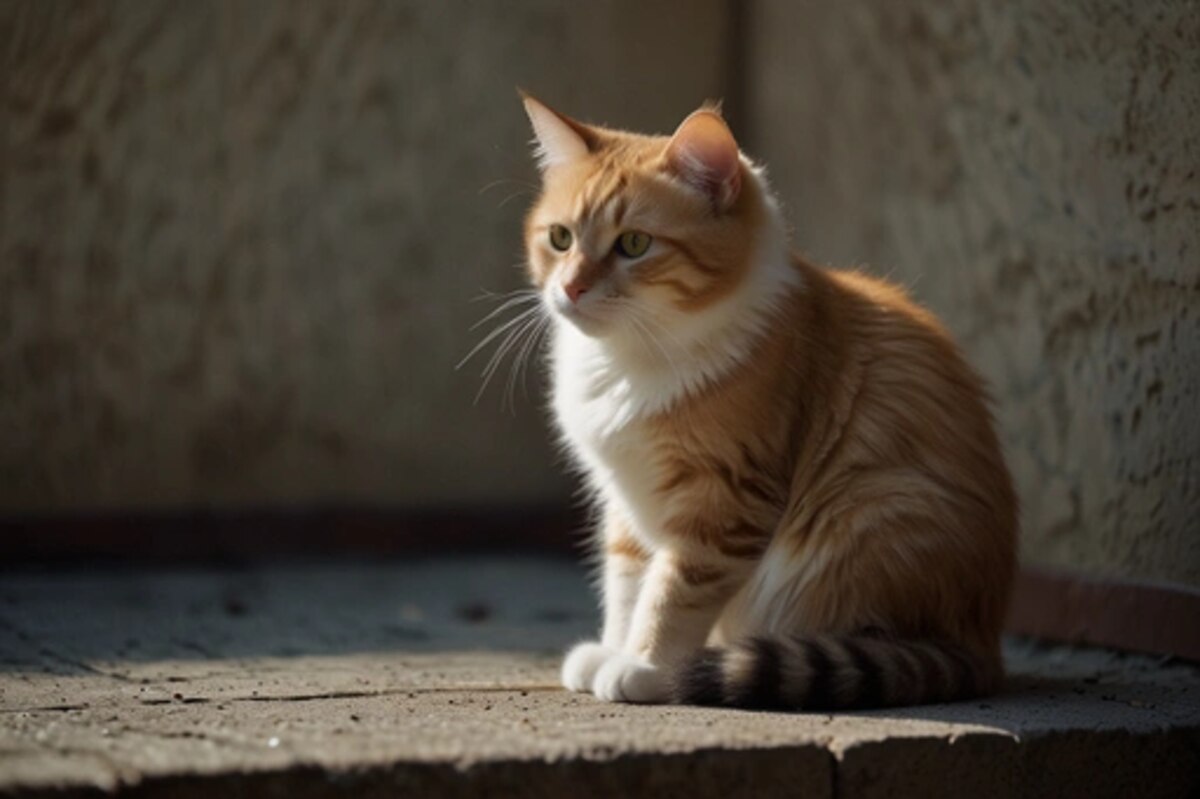
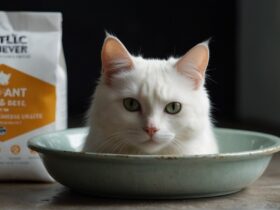
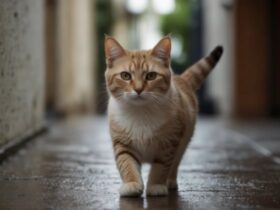
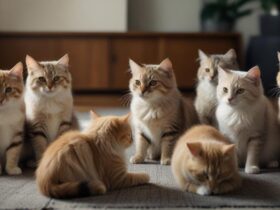
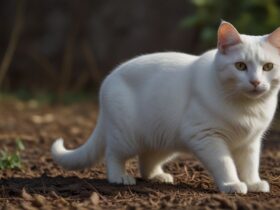
Leave a Review